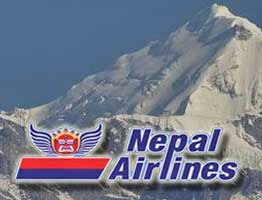Is investigation into Chinese MA-60 aircraft acquisition going astray?
KATHMANDU, August 1
This daily’s efforts to investigate the systemic problems plaguing Nepal’s civil aviation sector are leading to new unsightly discoveries.
It is evident that the statutory autonomy of Civil Aviation Authority of Nepal has been plainly hijacked by the political circle in charge of the Ministry for Culture, Tourism and Civil Aviation and CAAN for parochial interests effectively derogating the purported ‘powerful regulator’ to that of the ‘regulated’.
The matter relates to the ongoing investigation in the saga behind the induction of Chinese Modern Ark-60 aircraft under the ‘buy one get one’ deal by Nepal Airlines Corporation to serve domestic airports while the much-touted aircraft has failed spectacularly on ‘performance’ issues at most airports with prior known characteristics. Minister Kripasur Sherpa was recently on record admitting that the ‘Chinese gift was more of a burden’.
Clearly, the MA-60 (and the Y-12E) issue has more to it than meets the eye as almost all major political parties, including the opposition, have chosen to stay silent, deliberately, according to industry observers.
- Robert Mugabe, president of Zimbabwe, refused to fly the MA-60 for safety reasons
Normally, the purchase of civil aircraft by an operator is treated as routine business affair. “However, it is the acquisition by a state enterprise, of aircraft with an unenviable record for safety as well as commercial failure that is unsettling.”
The history behind the MA-60 acquisition dates back to early 2013 when a delegation led by MoCTCA Secretary flew to China, including the director general of CAAN and his team of technical experts for signing the agreement on airworthiness. However, it is here that the background grows murkier as the signatory to the pact on behalf of CAAN was the general manager of Tribhuvan International Airport, who masqueraded as a deputy director general, an act of subterfuge clearly.
No such airworthiness agreements were ever required when advanced aircraft like the ATRs and more recently the sophisticated A320 were inducted, simply because no problems were anticipated in the aircraft operations, an aviation expert said. “Later, all stops were pulled for issuing a type certificate to the aircraft and a TC board was hurriedly instituted under a retired CAAN executive, contrary to ICAO stipulations in its airworthiness manual that requires a representative from the airworthiness engineering division to serve as chairman of TCB comprising other experts and representatives of the applicant for the type certificate, Xi’an Aircraft Industry (Group) Company Ltd, China, in this case,” he added. Despite the fact that countries like Indonesia with a significantly higher level of airworthiness engineering activities had discreetly stuck to the simpler process of validating the CAAC-issued TC while inducting MA-60 for Merpati Airlines a few years ago, CAAN experts boldly embarked on ‘issuing’ a TC after visiting China.
Typically, in the process of issuing TC the sample aircraft are ground-and flight-tested in potentially hazardous conditions for evaluating its handling and safety features under every conceivable environment, and the aircraft equipped with pilot ejection mechanisms including safety parachutes, just in case. Besides, the prototypes involved in the type certification cannot be delivered to customers as they have been produced prior to the grant of a production certificate, another aviation expert explained. “Where are the prototype aircraft used by CAAN’s TCB?” he questioned.
The ongoing investigation is turning out to be interesting as the head of panel is a joint secretary who heads the aviation industry management division. Interestingly, this division also issues authorisation to airlines for expanding their fleet based on a joint-technical audit with CAAN. “If so, why isn’t the division itself being investigated for acts of omissions and commissions in this high-profile case instead of looking for scapegoats?” a senior NAC executive quipped.






